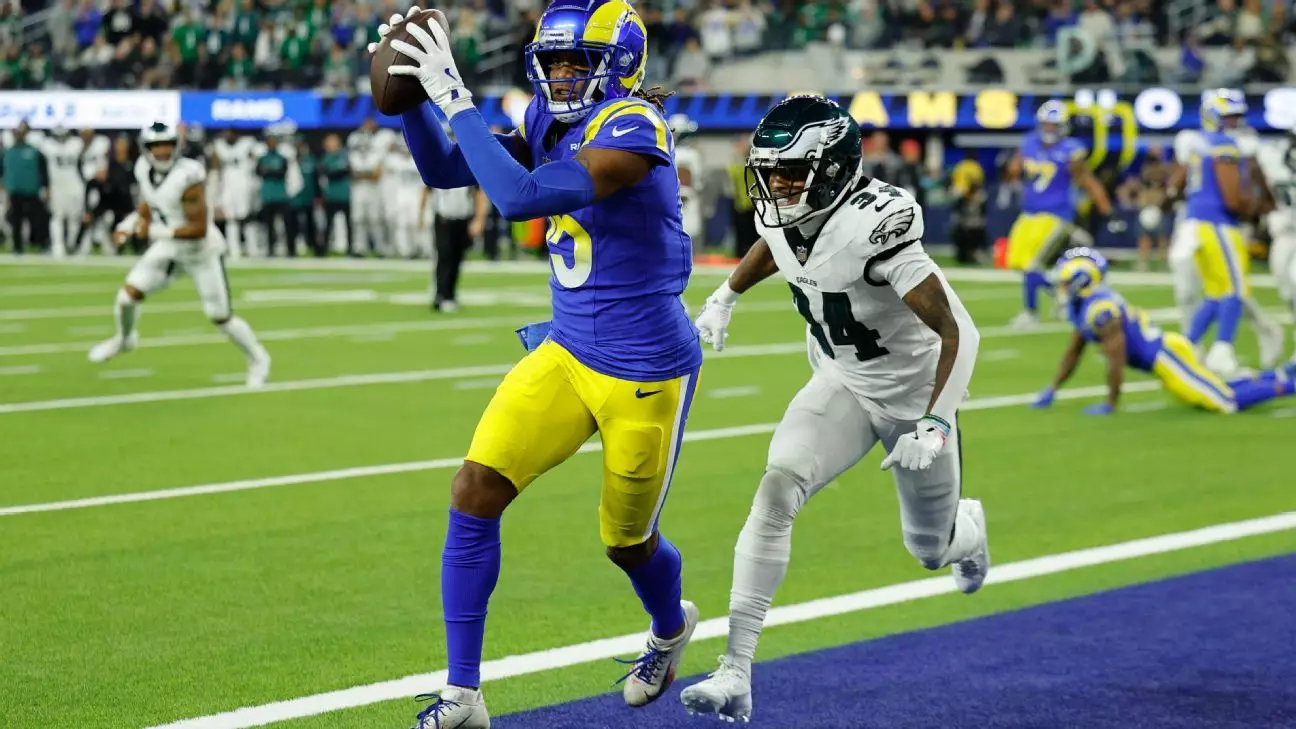The world of professional sports often shines a spotlight on its athletes, not only for their on-field accomplishments but also for their off-field behaviors. Recent events involving Los Angeles Rams wide receiver Demarcus Robinson underscore this duality of fame and responsibility. Following his arrest for driving under the influence, Robinson has faced scrutiny and consequence, providing an opportunity for reflection on the culture of accountability within professional sports.
On Monday morning, authorities arrested Robinson at approximately 5:13 a.m. after he was observed driving at over 100 mph on U.S. 101 in Woodland Hills, California. This arrest occurred just hours after a disappointing game against the Philadelphia Eagles, where Robinson had played a critical role by catching a touchdown. The incident marks a troubling moment not just for Robinson but also for the Rams organization, which is expected to uphold a certain standard of conduct among its players.
Robinson’s situation is alarming on numerous fronts. Aside from the potential legal ramifications of a DUI, the incident raises questions about self-discipline and decision-making among professional athletes, who often face intense pressures but are equally aware of the consequences of their actions.
In response to his arrest, Rams coach Sean McVay stated that the team would refrain from imposing any immediate suspension on Robinson, opting instead to “let the legal process take place.” This decision reflects a growing trend in professional sports toward allowing due process to unfold before rushing to punitive measures. The league’s disciplinary protocols also play a critical role in framing the appropriate responses to such incidents.
McVay further emphasized the importance of understanding the gravity of Robinson’s actions and the near-tragic consequences they could have had. This perspective is crucial; it highlights the delicate balance teams must maintain between supporting their players and enforcing standards of conduct.
After practice on Wednesday, Robinson addressed his teammates, acknowledging the severity of his actions. He expressed regret for the detrimental light his behavior casts on the Rams organization, stating, “It’s a bad look.” His willingness to confront his mistake in front of his teammates not only demonstrates accountability but also initiates a dialogue that many teams could benefit from during times of crisis.
Robinson’s reflections offer a poignant lesson about growth through adversity. He recognized the importance of his actions not only for his own future but also as a cautionary tale for his teammates. Robinson’s articulation of his hopes that others learn from his error underscores the need for a supportive environment within the team where players can openly discuss their mistakes and the lessons they learn.
The incident involving Demarcus Robinson serves as a microcosm of larger issues plaguing professional sports, including the handling of personal conduct among athletes. It presents an opportunity for teams, leagues, and players to engage in meaningful discussions about responsibility and ethics.
Robinson’s case could spark broader conversations around the need for more comprehensive support systems for players, particularly regarding issues like substance abuse and decision-making. Proactive initiatives—such as counseling, workshops, and mentorship—could provide players with the tools they need to navigate the pressures of their careers responsibly.
As Robinson continues his career, the impact of this incident will linger, shaping both his personal and professional relationships in the NFL. His journey back from this mistake, filled with lessons learned and accountability taken, will serve as a reminder of the responsibilities athletes carry not only to themselves but also to their teams and communities.
In the grand narrative of sports, moments like these transcend the scoreboard, offering opportunities for growth, compassion, and, ultimately, a deeper understanding of what it means to be a role model. As athletes face the challenges of fame and the expectations that come with it, they must remember: accountability can be the first step not just toward personal redemption but toward inspiring others to make better choices.

